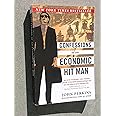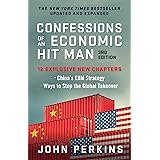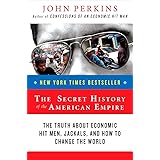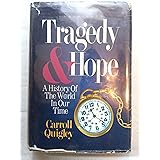
Enjoy fast, free delivery, exclusive deals, and award-winning movies & TV shows with Prime
Try Prime
and start saving today with fast, free delivery
Amazon Prime includes:
Fast, FREE Delivery is available to Prime members. To join, select "Try Amazon Prime and start saving today with Fast, FREE Delivery" below the Add to Cart button.
Amazon Prime members enjoy:- Cardmembers earn 5% Back at Amazon.com with a Prime Credit Card.
- Unlimited Free Two-Day Delivery
- Streaming of thousands of movies and TV shows with limited ads on Prime Video.
- A Kindle book to borrow for free each month - with no due dates
- Listen to over 2 million songs and hundreds of playlists
- Unlimited photo storage with anywhere access
Important: Your credit card will NOT be charged when you start your free trial or if you cancel during the trial period. If you're happy with Amazon Prime, do nothing. At the end of the free trial, your membership will automatically upgrade to a monthly membership.
Buy new:
$26.08$26.08
Ships from: Amazon Sold by: Chapel Books
Save with Used - Good
$9.48$9.48
Ships from: Amazon Sold by: ZBK Wholesale

Download the free Kindle app and start reading Kindle books instantly on your smartphone, tablet, or computer - no Kindle device required.
Read instantly on your browser with Kindle for Web.
Using your mobile phone camera - scan the code below and download the Kindle app.

OK
 Audible sample Sample
Audible sample Sample 


Confessions of an Economic Hit Man Paperback – December 27, 2005
There is a newer edition of this item:
Purchase options and add-ons
With a presidential election around the corner, questions of America's military buildup, environmental impact, and foreign policy are on everyone's mind. Former Economic Hit Man John Perkins goes behind the scenes of the current geopolitical crisis and offers bold solutions to our most pressing problems. Drawing on interviews with other EHMs, jackals, CIA operatives, reporters, businessmen, and activists, Perkins reveals the secret history of events that have created the current American Empire, including:
- How the defeats in Vietnam and Iraq have benefited big business
- The role of Israel as Fortress America in the Middle East
- Tragic repercussions of the IMF's Asian Economic Collapse
- The current Latin American revolution and its lessons for democracy
- U.S. blunders in Tibet, Congo, Lebanon, and Venezuela
From the U.S. military in Iraq to infrastructure development in Indonesia, from Peace Corps volunteers in Africa to jackals in Venezuela, Perkins exposes a conspiracy of corruption that has fueled instability and anti-Americanism around the globe, with consequences reflected in our daily headlines. Having raised the alarm, Perkins passionately addresses how Americans can work to create a more peaceful and stable world for future generations.
- Print length303 pages
- LanguageEnglish
- PublisherPlume
- Publication dateDecember 27, 2005
- Dimensions5.3 x 0.73 x 8 inches
- ISBN-100452287081
- ISBN-13978-0452287082
- Lexile measure1160L
The Amazon Book Review
Book recommendations, author interviews, editors' picks, and more. Read it now
Frequently bought together

Similar items that may deliver to you quickly
From the Publisher

The riveting third edition of this New York Times bestselling title expands its focus to China, exposes corruption on an international scale, and offers much-needed solutions. Extensively updated, this edition features twelve new chapters, including a new introduction, preface, and study guide. The book brings the story of economic hit men (EHMs) up-to-date and focuses on China’s EHM strategy.

|

|
|
|---|---|---|
| Touching the Jaguar | Confessions of an Economic Hit Man, 3rd Edition | |
| Customer Reviews |
4.6 out of 5 stars
194
|
4.6 out of 5 stars
233
|
| Price | $21.50$21.50 | $16.99$16.99 |
| More from John Perkins | Transforming Fear into Action to Change Your Life and the World | Includes 12 explosive new chapters! |

John Perkins has written eleven books, including the first edition of Confessions of an Economic Hitman, which was on the New York Times bestseller list for more than seventy weeks and was translated into over thirty languages. As a former chief economist, he advised the World Bank, the United Nations, Fortune 500 corporations, and governments around the world.
|
|
|
|
|---|---|---|
|
|
|
|
Editorial Reviews
Review
“Astonishing.” —Boston Herald
“This riveting look at a world of intrigue reads like a spy novel...Highly recommended.” —Library Journal
“Here are the real-life details—nasty, manipulative, plain evil—of international corporate skullduggery spun into a tale rivaling the darkest espionage thriller.” —Greg Palast, author of The Best Democracy Money Can Buy
From the Back Cover
The Rocky Mountain News
"Astonishing."
Boston Herald
"This riveting look at a world of intrigue reads like a spy novel . . . Highly recommended."
Library Journal
About the Author
Product details
- Publisher : Plume (December 27, 2005)
- Language : English
- Paperback : 303 pages
- ISBN-10 : 0452287081
- ISBN-13 : 978-0452287082
- Lexile measure : 1160L
- Item Weight : 10.7 ounces
- Dimensions : 5.3 x 0.73 x 8 inches
- Best Sellers Rank: #153,326 in Books (See Top 100 in Books)
- Customer Reviews:
Videos
Videos for this product

5:09
Click to play video

Customer Review: American Empire - Get Educated!
successprogress

About the author

John Perkins is an author and activist whose 10 books on global intrigue, shamanism, and transformation including "Touching the Jaguar," "Shapeshifting" and the classic "Confessions of an Economic Hit Man" have been on the New York Times bestseller list for more than 70 weeks, sold over 2 million copies and are published in at least 35 languages.
As chief economist at a major consulting firm, John advised the World Bank, United Nations, Fortune 500 corporations, US and other governments. He regularly speaks at universities, economic forums, and shamanic gatherings around the world and is a founder and board member of the Pachamama Alliance and Dream Change, nonprofit organizations that partner with indigenous people to protect environments and that offer global programs to change the destructive ways of industrial societies.
John advises corporations, executives, and entrepreneurs on ways to make the transition from a Death Economy (exploiting resources that are declining at accelerating rates) to a Life Economy (cleaning up pollution, recycling, and other technologies that create regenerative life-styles and economies) -- a subject that is detailed in "Touching the Jaguar."
John has lived four lives: as an economic hit man (EHM); as the CEO of a successful alternative energy company, who was rewarded for not disclosing his EHM past; as an expert on indigenous cultures and shamanism, a teacher and writer who used this expertise to promote ecology and sustainability while continuing to honor his vow of silence about his life as an EHM; and as a writer who, in telling the real-life story about his extraordinary dealings as an EHM, has exposed the world of international intrigue and corruption that is turning the American republic into a global empire despised by increasing numbers of people around the planet.
John's Books:
Touching the Jaguar: Transforming Fear into Actions to Change Your Life and the World
The New Confessions of an Economic Hit Man
Hoodwinked
Confessions of an Economic Hit Man
The Secret History of the American Empire
Shapeshifting
The World Is As You Dream It
Psychonavigation
The Stress-Free Habit
Spirit of the Shuar
To learn more about John and his work and subscribe to his newsletter: www.johnperkins.org
Connect with him online at: facebook.com/johnperkinsauthor; at instagram.com/johnperkinsauthor; at twitter.com/economic_hitman
For further information about events where John Perkins is speaking or teaching visit: http://johnperkins.org/events
Customer reviews
Customer Reviews, including Product Star Ratings help customers to learn more about the product and decide whether it is the right product for them.
To calculate the overall star rating and percentage breakdown by star, we don’t use a simple average. Instead, our system considers things like how recent a review is and if the reviewer bought the item on Amazon. It also analyzed reviews to verify trustworthiness.
Learn more how customers reviews work on AmazonReviews with images
-
Top reviews
Top reviews from the United States
There was a problem filtering reviews right now. Please try again later.
Over the years, the process has become corrupt, with both the IMF and World Bank becoming controlled by the multinational corporations and their banks. When President Nixon went off the gold standard in 1971, the IMF's reason for existence evaporated, because Bretton Woods and the fixed dollar went up in smoke. Now the problem for the big banks like Chase Manhattan, Citicorp and the Bank of America became two-fold:
1) As surplus dollars accumulated in their reserves and there were no credit-worthy Americans wanting to borrow, the banks had to think of ways to lend the money abroad or it would sit in their vaults earning zip, which means it really is losing money as the paper dollar - freed from its gold anchor - was inflating and losing purchasing power. Citigroup's Walter Wriston came up with the idea that the surplus should be loaned to poor countries, even though they had no collateral, because governments had to pay off their hard-currency loans or lose their international credit ratings.
2) If the countries that borrowed from Chase or Citicorp could not pay back interest or principle and did not worry about stiffing the private bankers, they would have to swallow the non-performing loans. The solution was to have the IMF, looking for something to justify its existence, step in to collect the debt. All it had to do was persuade the U.S. Congress to ante up billions of taxpayer dollars to fill their coffers. They could then go to the deadbeat country and say, "We will give you this money so you can pay Chase and Citicorp what you owe them, but you will have to raise taxes on your own people and devalue your currency as the conditions for the loan"
This book is an account by Mr. Perkins a foot soldier in these operations of the Evil Empire. In extension Mr. Perkins does identifies Bechtel Corporation and Halliburton as agents in this quiet conspiracy to make sure the good old USA flourishes, at the expense of relentless impoverishment of the poorest countries of the world. In his book Confessions of an Economic Hit Man he describes how as a highly paid professional, he helped the U.S. cheat poor countries around the globe out of trillions of dollars by lending them more money than they could possibly repay and then taking over their economies.
The scam: Mr. Perkins worked for was a company named Chas. T. Main in Boston, Massachusetts. He was responsible for giving loans to other countries, much bigger than they could possibly repay. One of the conditions of the loan is that they would then have to give ninety percent of that loan back to a U.S. company, or U.S. companies, to build the infrastructure - a Halliburton or a Bechtel. These companies would then go in and build an electrical system or ports or highways, and these would basically serve just a few of the very wealthiest families in those countries. The poor people in those countries would be stuck ultimately with this amazing debt that they couldn't possibly repay. A country today like Ecuador owes over fifty percent of its national budget just to pay down its debt. And it really can't do it. So, we literally have them over a barrel. So, when we want more oil, we go to Ecuador and force them to provide us with access to our oil companies your Amazon rain forest, which are filled with oil. The entire loan with interest finds its way back into the Unites States indirectly, while the host country is left with the debt plus lots of interest, and they basically become our servants, our slaves.
Panama: In 1903 with the mammoth effort to build the Panama Canal underway; the United States under Theodore Roosevelt demanded Columbia to sign a treaty turning the isthmus over to a North American consortium. Columbia refused; Roosevelt sent in the marines; who removed a popular commander and declared Panama an independent nation. A puppet government was installed and the first canal treaty was signed; it established an American economic zone on both sides of the waterway. The country was ruled by an oligarchy of wealthy families with strong connections to Washington. A coup overthrew Arnulfo Arias; the last in the parade of puppet dictators and Omar Torrijos emerged as the head of the state. Torrijos was highly regarded by the Panamian middle and lower class as the champion for the people. His fate was an assassination at the hands of CIA.
Guatemala: The United Fruits Company had been Guatemala's political equivalent of the Panama Canal. Founded in the 1880s, United Fruit grew into one of the most powerful forces in Central America. During the 1950s, reform candidate Jacob Arbenz was elected president of Guatemala in an election hailed all over the hemisphere as a model of the democratic process. At the time less than 3% of Guatemalans owned 70% of the land. Arbenz promised to help the poor dig their way out of starvation, and after his election he implemented a comprehensive land reform program. The United Fruit Company opposed these measures; since they were the largest and the most oppressive land owners in the country. The company in retaliation launched a public relations campaign in the United States; aimed at convincing the American public and congress that Arbenz was part of a Communist plot and Guatemala had become a Soviet satellite. In 1954, the CIA orchestrated a coup; American pilots bombed Guatemala City and the democratically elected Arbenz was overthrown; replaced by Cornel Armas a ruthless ally of America.
Saudi Arabia: A deal was worked out with Saudi Arabia, whereby the Royal House of Saud agreed to send most of their petro-dollars back to the United States and invest them in U.S. government securities. The Treasury Department would use the interest from these securities to hire U.S. companies to build Saudi Arabia new cities, new infrastructure which we've done. And the House of Saud would agree to maintain the price of oil within acceptable limits to us, which they've done all of these years and in return the United States were the guarantors of power remaining in the House of Saud. And in Iraq we tried to implement the same policy that was so successful in Saudi Arabia, but Saddam Hussein didn't buy. When the economic hit men fail in this scenario, the jackals move in. Jackals are C.I.A.-sanctioned people that come in and try to foment a coup or revolution. If that doesn't work, they perform assassinations. Or try to. In the case of Iraq, they weren't able to get through to Saddam Hussein. So the third line of defense, if the economic hit men and the jackals fail, the next line of defense is to send in the marines to invade the country.
An important intellectual source of support for the rebels (George Washington,Alexander Hamilton,Benedict Arnold)was the revolutionary book on political economy written by the great philosopher,Adam Smith,in 1776 called The Wealth of Nations.Perkins(and also President Chavez of Venezuela,for example) appears to be completely unaware that Smith provides a complete system for opposing precisely the same type of exploitative behavior faced by the American colonialists over 230 years ago.What are the policies that Smith would recommend,for instance,to President Chavez ? First,Smith would recommend that huge retaliatory and revenue tariffs be placed on all imported goods coming from countries that are heavily subsidizing products being produced by multinational corporations.Second,Smith would recommend that all monopolies be broken up.Third,Smith would recommend that the central bank of Venezuela impose a low,fixed rate of interest on all loans to all residents of Venezuela that would not be higher than the equivalent of the existing prime rate of interest in Venezuela now.Fourth,Smith would suggest that all loans to prodigals,projectors(Keynes's speculators),and imprudent risk takers be prevented.Fifth,Smith recognized that the capitalist system of wealth generation(The Invisible Hand of the Market process that starts with comparative advantage ,leading to the specialization of labor ,leading to the division of labor ,leading to the extension of the market ,leading to economic growth and ending with real free trade(both national and international),while powerful,generated very severe negative,undepletable externalities that would be detrimental to the entire work force.Smith made it clear that only government action and interference in this process could mitigate/reduce/eliminate these negative consequences of trade.Sixth,Smith would advocate that all public goods beneficial to the country of Venezuela as a whole be financed out of the general tax revenue.Finally,Smith would suggest that the tax system in Venezuela be a progressive one overall.This would entail that the rich and multinational corporations/international banks pay higher overall taxes.These policy recommendations can be found on the following pages of the Modern Library(Cannan)edition of the WN:pp.298-302,322-328,339-340,434-439,681-682,716-768,especially 734-735,777-780,and 794.
Smith's economic policies would vastly improve the political,social,economic,and institutional aspects of life in Venezuela (or any other 2nd or 3rd world country when combined with Smith's dictum of the necessity of implementing the rule of law and eliminating economic and political corruption in the ruling party).There is no need to nationalize the oil companies,banks, or the private sector.This is a mistaken solution to a real problem.
In summary,Perkins needs to rewrite his book.This can be done by adding an additional chapter that deals with Adam Smith's entire system of thought.It is apparent that Perkins was never exposed to the real Adam Smith in any of his economics classes.This is not surprising since there are no more than a couple of dozen economists currently living today in the world who have read The Wealth of Nations in its entirety.The vast majority of economists,if they read Smith at all,read pp.1-150 and 421-427 and call it a day.It is tragic that Smith's path breaking work is ignored by,for example, the economists at the World Bank and International Monetary Fund,all of whom Smith would fire for gross incompetence and negligence for failing to carry out his very clearly specified recommendations on pp.434-439.
Top reviews from other countries
La livraison - par bateau - a pris plus de temps que prévu mais lorsque j'ai contacté le vendeur pour lui faire part de mon étonnement, celui-ci s'est empressé de me répondre avec professionnalisme et courtoisie pour me rassurer. J'ai apprécié sa réactivité et l'intérêt qu'il porte à la demande d'un client même si en l’occurrence le prix de la commande ne dépassait pas 2,60 €.























